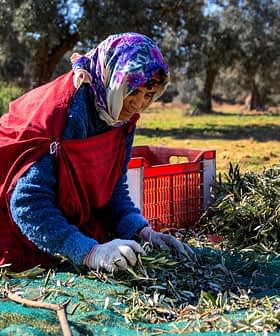New rules in Tunisia stipulate that the country’s olive oil producers must obtain specific authorization to participate in the country’s duty-free export quota program with the European Union.
According to the Italian news agency Ansa, the new Tunisian presidential decree extends to all Tunisian companies already registered in the official list of olive oil exporters.
As a result, interested exporters will have to receive permission from the Ministry of Agriculture at least a week before the actual shipment.
See Also:Olive Oil Trade NewsCurrently, the cooperation agreement signed by the European Union with the North African country allows Tunisia to export up to 56,700 tons of duty-free olive oil to E.U. member states annually.
The new measures are meant to enhance the traceability of Tunisian olive oil products. To obtain the authorization, exporters will have to enter several details in their requests, including the importer partner data and a copy of the sale contract.
That contract will detail the expected delivery times, volumes, quality of the olive oil and the price set for the product. The agreement will come into force after the ministry has approved it.
The duty-free trade agreement is highly significant for Tunisian olive oil producers. In recent years, local authorities have asked the European Union to expand the 57,600 tons quota to at least 100,000 tons.
However, farmers in some European countries have long protested against duty-free imports from Tunisia, which they perceive as unfair competition.
Coldiretti Puglia, a regional branch of the Italian farms’ association, said imports of Tunisian olive oil should be subjected to the same rules that Italian producers have to abide by, including rules about traceability and provenance.
Tunisian olive oil sales’ overall value has been growing in recent times. In April, Tunisia’s agriculture ministry said olive oil sales reached 620 million dinars (€190 million) in the first three months of the crop year.
These figures represent a 32-percent increase compared to the same period of the previous year, with 18 percent of that increase coming from exports.
The Tunisian National Observatory on Agriculture (Onagri) added that a 40-percent rise in average olive oil export prices was one of the reasons behind the spike in exports.








